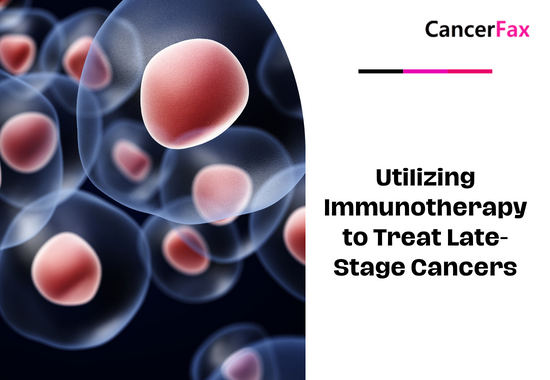Liver cancer treatment, liver cancer-targeted drugs, a new combination of liver cancer drugs significantly prolong survival.
Cancer & survival rate
The number of people that survive for five years after being diagnosed with digestive system cancers seems to be particularly low in India compared to more advanced countries. Survival rates are just 19% for stomach cancer compared to 25-30% in most countries, with 58% surviving in South Korea. In India, the survival rate for colon cancer is 37% while it is 50-59% in most countries and goes up to 65% in the US. Only 4% of liver cancer patients survive for five years in India compared to 10 to 20% elsewhere. Survival rates have dipped in the case of rectal cancer in India.
Even in breast and prostate cancers, where medical advances have ensured that over 80% of patients survive in advanced countries, only about 60% of Indian patients survive. Ovarian cancer survival rates have declined in India from 23% in 1995-99 to 14% in 2005-09. Cervical cancer survival rates are 46% compared to the global figure of 50%, but there is a slight decline in India from 47% in 2005. It is understood that there are one million new liver cancer patients worldwide each year, of which 55% are patients in China. About 110,000 people die of liver cancer each year in China, and the 5-year recurrence rate in China is as high as 70%. Liver cancer is highly malignant and highly contagious.
Early symptoms of liver cancer
1. Cough: The liver mass stimulates the diaphragm. During breathing, it causes a reflex in the lungs to cause a cough, or liver cancer has lung metastases that cause a cough.
2. Tiredness: Cancer cells damage the liver’s storage function and the body’s energy supply is reduced.
3. Unexplained weight loss: Cancer cells require far more energy and nutrients than normal tissues during the growth process, leading to a lack of nutrition in the body, so patients show increasing weight loss. Other cancers also show signs of wasting.
4. Gastrointestinal symptoms: Digestive disorders occur. About one-third of patients with liver cancer will experience symptoms of digestive tract diseases at the early stage of illness, similar to stomach diseases.
5. Fever: mostly cancerous fever, which is mainly caused by the release of pyrogens into human blood circulation after tumor tissue necrosis.
6. Bleeding: bleeding gums, subcutaneous bruising and other symptoms.
7. Pain: Hepatic pain occurs in most patients with advanced liver cancer.
Why are there so many liver cancer patients in developing countries? What are the causes of liver cancer?
1. Alcoholism and alcoholic hepatitis: Alcohol and its toxic metabolite acetaldehyde can cause alcoholic fatty liver, alcoholic hepatitis, and even liver fibrosis and liver cancer.
2. Obesity and fatty liver: Obesity is one of the root causes of many chronic diseases. Obesity can cause fatty liver problems and even worsen into cirrhosis and liver cancer. Usually, pay attention to 7 points full of diet, good exercise habits, eat high fat and high sugar food lifestyle.
3. B / C viral hepatitis: Chronic hepatitis B and C are the main causes of liver cancer in the past, accounting for about 60 ~ 70%. With the full implementation of the hepatitis B vaccine for newborns, the proportion of hepatitis B infection has decreased. Hepatitis C was also very popular a few years ago. Hepatitis C is currently curable and the threat of viral hepatitis is decreasing.
How to prevent liver cancer from recurring?
1. Active consolidation treatment. Surgery and related treatments can remove most tumor tissues, but cancer cells cannot be completely removed. Residual cancer cells have a high probability of recurrence; therefore, consolidation treatment must be performed in a timely manner. Traditional Chinese medicine and medicines for liver and liver protection can be used for a long time.
2. Actively exercise to strengthen your immunity and resistance to disease.
3. A balanced diet, strengthen nutrition, reduce fat intake and reduce inhalation of toxic substances.
4. Maintain a good mentality, usually learn to adjust the mentality and emotions, achieve a combination of work and rest, and avoid overwork. Stress and fatigue can cause physical weakness, which can lead to low immunity and low immunity, which can lead to cancer.
How is liver cancer treated and what are the new drugs?
Liver cancer treatment is mainly based on surgery, chemotherapy, radiotherapy, targeted therapy, and immunotherapy.
Liver cancer-targeted drugs
| common name | Product name | Target | Time to market | China listed | Original researcher | Drug type |
| Sorafenib | Nexavar, Dogemei | KIT, VEGFR, PDGFR | 2005 | Yes | Bayer | Small molecule |
| Regorafenib | Stivarga | Multi-target | 2012 | no | Bayer | Small molecule |
| Ramucirumab | Cyramza | VEGFR2 | 2014 | Yes | Eli Lilly | MAb |
| Lenvatinib | Lenvima | Multi-target | 2015 | Yes | Esai | Small molecule |
The combination of atejizumab and bevacizumab is better than monotherapy
Recently, the European Society of Oncology 2019 (Asian Congress) held in Singapore announced the phase III of the tumor immunotherapy Tecentriq (atezolizumab, atuzumab) combined with Avastin (bevacizumab) first-line treatment of hepatocellular carcinoma (HCC). Clinical study IMbrave150 (NCT03434379). Compared to sorafenib, the first-line combination of atrezumab and bevacizumab has statistically and clinically improved progression-free survival (PFS) and overall survival (OS). The risk of death was reduced by 42% in patients receiving combination therapy, and the progression-free survival rate was 41% (no progression or risk of death).
In addition, in December 2018, the US FDA approved atezolizumab combined with bevacizumab + chemotherapy (carboplatin and paclitaxel) as first-line treatment for adult patients with metastatic non-squamous non-small cell lung cancer without EGFR or ALK genome tumor aberrations. Based on data from group B of the IMpower150 study, compared with bevacizumab + chemotherapy, atezolizumab combined with bevacizumab + chemotherapy significantly prolonged patient survival (19.2 months vs 14.7 months).
Atuzumab is a PD-L1 antibody and belongs to tumor immunotherapy. The drug can bind to a protein called PD-L1 expressed on tumor cells and tumor infiltrating immune cells, blocking it from PD-1 and B7. .1 receptor interactions. By inhibiting PD-1, atuzumab can activate T cells, which has the potential to be used as a basic combination therapy for cancer immunotherapy, targeted drugs and various cancer chemotherapy.
Bevacizumab is an angiogenesis inhibitor that targets binding to vascular endothelial growth factor (VEGF). VEGF plays an important role in angiogenesis and maintenance in the tumor life cycle. Avastin infects the blood supply of tumors by directly binding to VEGF, preventing it from interacting with receptors on vascular cells. The blood supply of a tumor is considered to be the
key to its ability to grow and metastasize in vivo.
There is a strong scientific basis for combining atelizumab and bevacizumab, and the combination of the two drugs has the potential to strengthen the immune system against tumors. In addition to its established anti-angiogenic effect, bevacizumab can further enhance atezumab to restore body resistance by inhibiting VEGF-related immunosuppression, promoting T-cell tumor infiltration, and initiating T-cell responses to tumor antigens. Cancer immunity.

